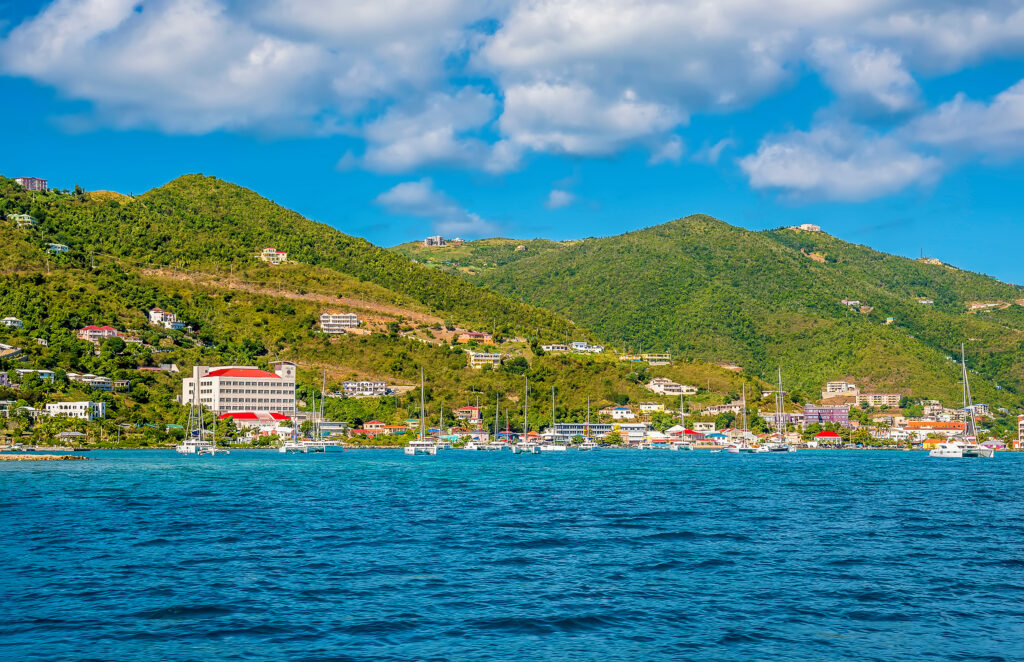
About British Virgin Islands
The British Virgin Islands are located in the Caribbean, approximately 95 kilometres (60 miles) East of Puerto Rico. The total land area of BVI is approximately 155 square kilometres (60 square miles). The principal island of BVI is Tortola, where the capital of Road Town is located. The total population of BVI is approximately 22 thousand.
The Natural Beauty of BVI
The BVI archipelago contains a stunning variety of about 50 islands, each having a unique charm and attraction. From lush green hillsides and rocky coastlines of the main island of Tortola, to the pristine beaches and amazing coral reefs of the Anegada atoll, the glorious natural splendor of British Virgin Islands makes it easy to see why “Natures´ little secrets” is the official touristic slogan of the BVI. But that´s far from all.
BVI as a Tax Haven and Sailing Destination
BVI is not only a tax paradise and an offshore financial centre. It is also a paradise for sailors and an ideal place for the perfect sailing holiday. Called the Sailing Capital of the Caribbean, BVI is the preferred choice for thousands of recreational sailors, who are attracted by the ideal climate, consistent winds, variety of islands, emerald isles, tranquil beaches, exceptional dive sites and superb cuisine in the many of islands´ restaurants.
Infrastructure and Amenities in BVI
There is the right infrastructure, too, with modern, well protected marinas, excellent provisioning and comprehensive boatyard services. Last, but to some visitors certainly not least, there are some stunning duty-free shopping bargains to be found in Tortola – especially true for fine jewellery and watches.
Access to the British Virgin Islands is fairly easy, despite the fact that its Terrence B. Lettsome Airport (official airport abbreviation “EIS”) can not actually accommodate jumbo jets – which is the reason why there are no direct flights from the USA, Europe or South America. However, there is a multitude of local flight connections from Puerto Rico, US Virgin Islands, Antigua, St Maarten and St Kitts.
Accessing the British Virgin Islands
For visitors from the United States the easiest route would be to fly from any of the big US cities to St Thomas, US Virgin Islands (STT) or to San Juan, Puerto Rico (SJU). From both of these locations there are numerous scheduled island-hopper flights to BVI. From US Virgin Islands there is also a regular ferry service to Tortola, which reaches destination in less than an hour – clearly a more scenic and educating journey than taking just another airplane.
European visitors might find it most convenient to fly from Paris or Amsterdam to St Maarten (SXM), or from London to Antigua (ANU) from where an island-hopper flight will take another 30 minutes or so to reach BVI.
Many visitors arrive to BVI on board of the cruise ships, which call to Tortola during their Caribbean cruises.
Political and Social Stability in the British Virgin Islands
BVI is a democratic and politically stable country. Being a British Crown Dependency, it is totally lacking any political or social tension. The BVI government consists of a Governor, appointed by the British Crown, and thirteen democratically elected members of a Legislative Council who, in turn, elect Ministers. The Executive Council of the Territory consists of the Governor, the Deputy Governor, the Ministers and the Attorney General. The United Kingdom, through the Governor, is responsible for defence, external affairs, internal security, and the administration of justice.
Legal and Judicial System in BVI
The BVI has an independent legal and judicial system based on English Common Law, with a right of final appeal to the Privy Council in London. While the legal system is primarily based on that of the Great Britain, all domestic matters are legislated locally, by the Legislative Council. This includes taxation, company laws, banking, insurance and commercial regulations, etc. Laws and regulations are often developed in consultation with the private sector.
Taxation and Financial Regulations in BVI
There are no capital gains taxes, inheritance taxes or death duties in the BVI. Government revenues are derived from local payroll tax, import duties, stamp duties, license fees and company registration fees. By specific provisions in the corporate legislations, BVI company assets are protected from confiscation or expropriation orders or similar actions by foreign governments.
Currency and International Treaties in BVI
The official currency of BVI is the US Dollar. There are no exchange controls, no restrictions on the free movement of currency and certainly no opportunity for the government to artificially influence the supply of the currency.
The British Virgin Islands are a party to two double-taxation avoidance treaties, with Japan and Switzerland, initially entered into by the United Kingdom and extended to cover the British Virgin Islands (although the Territory does not have a tax treaty with the United Kingdom itself). These treaties are little used and there are no plans to negotiate any new tax treaties as. There are no information-sharing treaties with any foreign governments. The British Virgin Islands is a very successful offshore finance centre, with special emphasis on offshore business companies, trusts, offshore fund management and banking. Offshore services sector contributes greatly to BVI´s national economy, being one of the primary reasons behind the increasing prosperity enjoyed by the country. Therefore, there is a distinct support both from the Government and the general public towards further development of the offshore financial sector in BVI.
Ready to work with us?
We listen. We talk in plain language. We’re human. And we’re here to help.